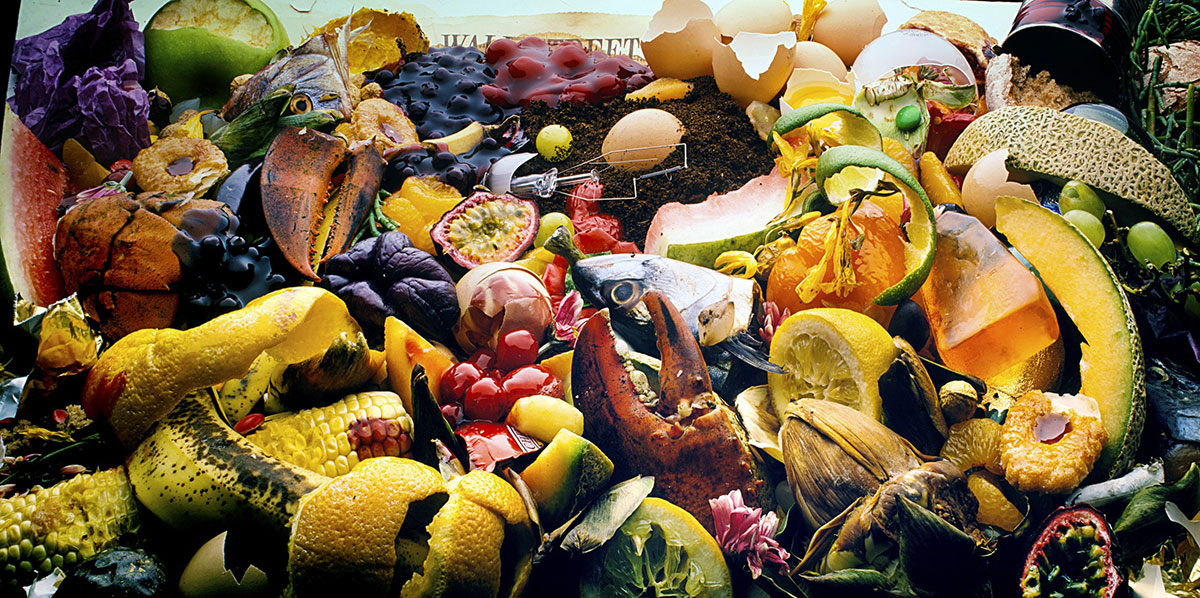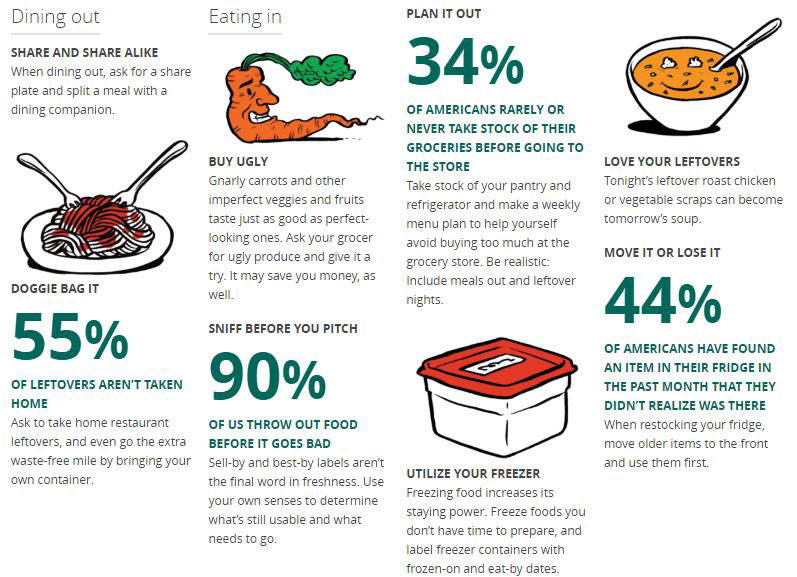1. Food Waste

The local food banks and other distributors have worked out agreements with restaurants to help eliminate waste by taking foods they cannot sell due to sell by dates and redistributing the foods. Globally, the issue of waste is a large one.
World Wildlife Federation has covered the topic in its Fall, 2018 magazine.
“Today, 7.3 billion people consume 1.6 times what the earth’s natural resources can supply. By 2050, the world’s population will reach 9 billion and the demand for food will double.
“So how do we produce more food for more people without expanding the land and water already in use? We can’t double the amount of food. Fortunately we don’t have to—we have to double the amount of food available instead. In short, we must freeze the footprint of food.
“In the near-term, food production is sufficient to provide for all, but it doesn’t reach everyone who needs it. In fact, one-third of the world’s food—1.3 billion tons—is lost or wasted at a cost of $750 billion annually. When we throw away food, we waste the wealth of resources and labor that was used to get it to our plates. In effect, lost and wasted food is behind more than a quarter of all deforestation and nearly a quarter of global water consumption. It generates as much as 10% of all greenhouse-gas emissions.
As it rots, it pollutes water and soil and releases huge amounts of methane, one of the most potent greenhouse gases.
“Another negative aspect of food waste is its connection to species loss. Consider this: Food production is the primary threat to biodiversity worldwide, expected to drive an astonishing 70% of projected terrestrial biodiversity loss by 2050. That loss is happening in the Amazon, where rain forests are still being cleared to create new pasture for cattle grazing, as well as in sub-Saharan Africa, where agriculture is expanding rapidly. But it’s also happening close to home.
“These wasted calories are enough to feed three billion people—10 times the population of the United States, more than twice that of China, and more than three times the total number of malnourished globally. Wasted food may represent as much as 10% of global greenhouse gas emissions, and is a main contributor to deforestation and the depletion of global water sources.
“By improving efficiency and productivity while reducing waste and shifting consumption patterns, we can produce enough food for everyone by 2050 on roughly the same amount of land we use now. Feeding all sustainably and protecting our natural resources.”

South Korea has a system that keeps about 90 percent of discarded food out of landfills and incinerators, has been studied by governments around the world. But the country’s mountainous terrain limits how many landfills can be built, and how far from residential areas they can be built.
Since 2005, it’s been illegal to send food waste to landfills. Local governments have built hundreds of facilities for processing it. Consumers, restaurant owners, truck drivers and others are part of the network that gets it collected and turned into something useful.
In the case of a restaurant when it gets to a plant. Debris — bones, seeds, shells — is picked out by hand though most facilities are automated. A conveyor belt carries the waste into a grinder, which reduces it to small pieces. Anything that isn’t easily shredded, like plastic bags, is filtered out and incinerated.
Then the waste is baked and dehydrated. The moisture goes into pipes leading to a water treatment plant, where some of it is used to produce biogas. The rest is purified and discharged into a nearby stream.
What’s left of the waste at the processing plant, four hours after Mr. Park’s team dropped it off, is ground into the final product: a dry, brown powder that smells like dirt. It’s a feed supplement for chickens and ducks, rich in protein and fiber, said Sim Yoon-sik, the facility’s manager, and given away to any farm that wants it.
For consumers, at apartment complexes around the country, residents are issued cards to scan every time they drop food waste into a designated bin. The bin weighs what they’ve dropped in; at the end of the month they get a bill.
Read more




